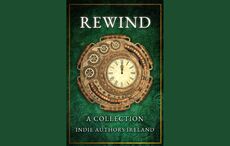By James J. Cotter III and Eamonn Dornan
A recent US Federal Appeals Court decision upholding subpoenas of research by two Boston College scholars into "The Troubles" has grave implications for political stability in Northern Ireland but it also highlights the threat to Americans' rights to free speech, a concern that will be shared, we believe, by the Irish people and all who value this most sacred and basic of human rights.
Academics—and journalists—take considerable risks in providing the American public with insightful information into the thoughts and processes of combatants in the world’s trouble zones. They deserve protections that the Court's recent ruling denies.
In this case, the British Government, with the acquiescence of US Attorney General Eric Holder, sought interviews that IRA combatants contributed to the “Belfast Project” and held at Boston College under the strictest conditions of security and confidentiality. We believe that these materials should be kept sacrosanct, and that their disclosure threatens to swing a wrecking ball through a painstakingly-constructed Irish Peace Process that Americans, as well as Irishmen, can rightly view with the pride of ownership.
The Belfast Project researchers, along with the American Civil Liberties Union of Massachusetts, made a number of compelling arguments advancing the free flow of information to the American public in the face of a subpoena from a foreign government, namely:
- British law enforcement could not demonstrate that the subpoenaed materials were essential to a good faith criminal investigation, as opposed to a politically-motivated propaganda exercise;
- the British made no attempt to obtain the information from less sensitive sources within its own jurisdiction, which they easily could have, instead turning the matter to our Attorney General to sort out;
- American citizens subject to a foreign subpoena will be deprived of their due process right to be heard in defense of government action and to raise allegations of bad faith on the part of the foreign government.
Nonetheless, the Court of Appeals decided that, pursuant to a treaty between the U.S. and U.K., the researchers did not even have the right to be heard or to assert a challenge that the request for evidence into the 40-year old killing was not the result of a police investigation made in good faith.
This decision means that our universities and citizens will be that much less informed, having been robbed of testimony from combatants in trouble zones throughout the world.
It also means that American citizens paradoxically have fewer rights when served with a subpoena from a foreign nation than when served with one from a U.S. law enforcement agency. Depriving U.S. citizens of their constitutional right to be heard on government actions which might adversely affect their interests was not the result anticipated by the US Senate or the President when the mutual legal assistance treaty with the British was ratified. In fact, this matter is of particular concern to Senator John Kerry, Chairman of the Foreign Relations Committee.
Some commentators, such as Boston Globe columnist Juliette Kayyem ("BC case throws cold water on IRA, academia," July 12) took a rather simplistic view of the world in relation to the release of these records when she wrote that “there should be no exception for ‘good’ terrorists.” But, of course, there have always been exceptions for “good terrorists” - those paid by the British government who have enjoyed immunity for the murder of innocent Irish nationalists, including human rights lawyers. Where stands, for instance, British prime minister Tony Blair's promise of a full public inquiry into the killing of Pat Finucane?
The U.S.-sponsored Good Friday Agreement was designed to end the days when a partisan police force could engage in politically-motivated prosecutions of participants from only one side of the combat.
Americans cherish their history. Our clients and others will continue to fight to protect the hard earned rights enshrined in our Constitution, including the rights of U.S. citizens to be heard when our government acts adversely to all our interests. We hope and believe that the people of Ireland will share in our quest.
James J. Cotter III and Eamonn Dornan are attorneys for Boston College. Researchers Ed Moloney and Anthony McIntyre.




Comments